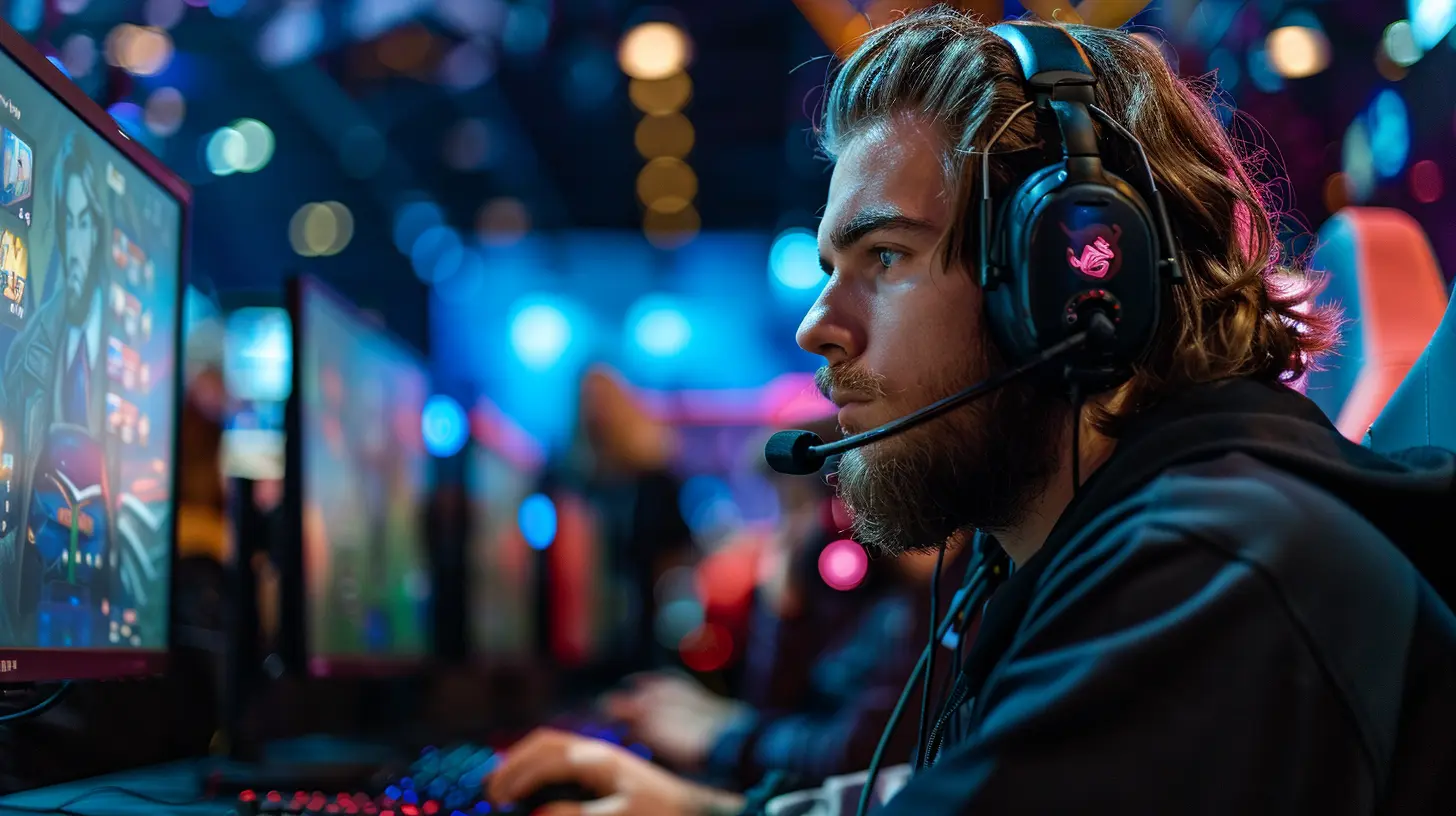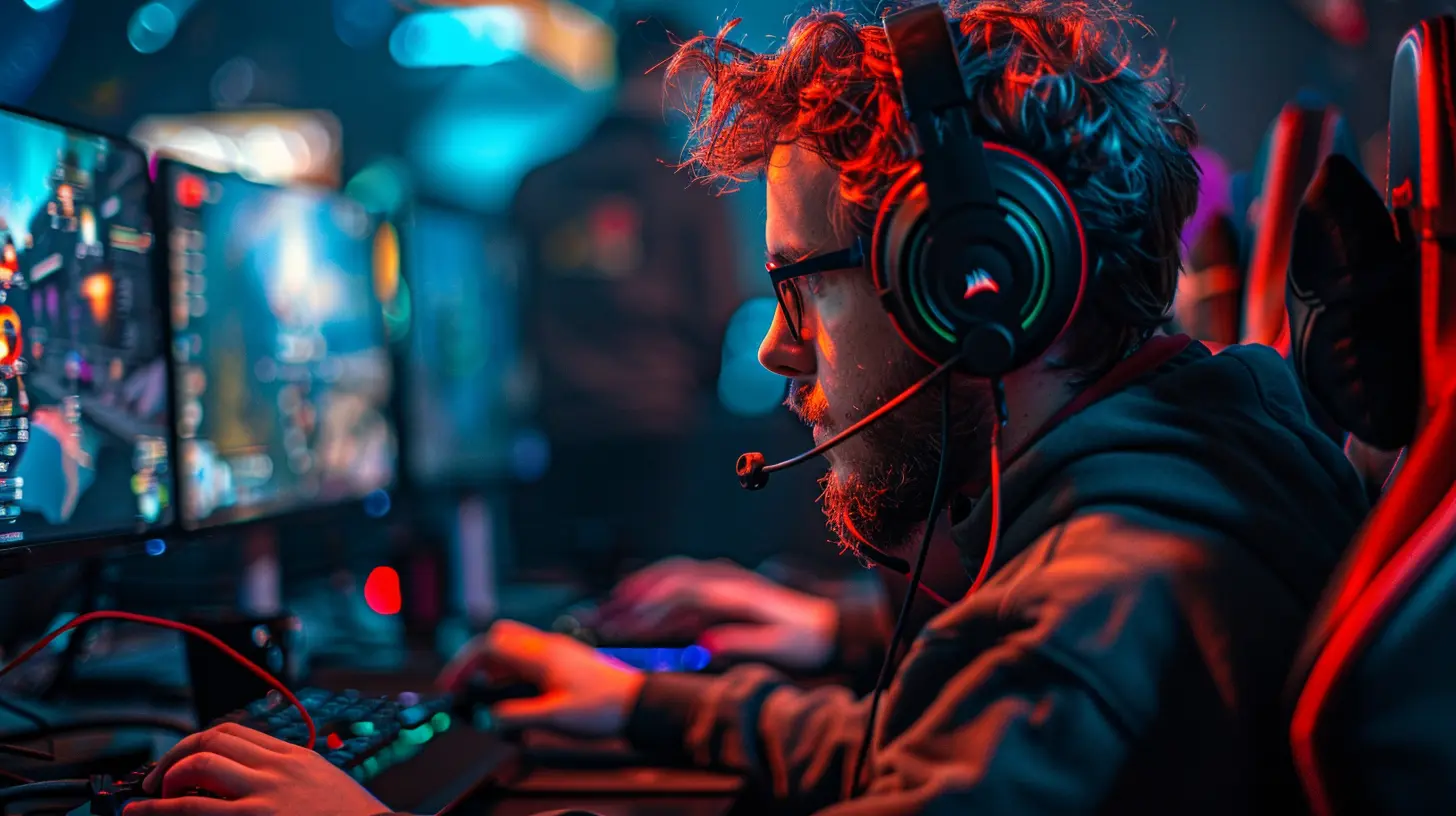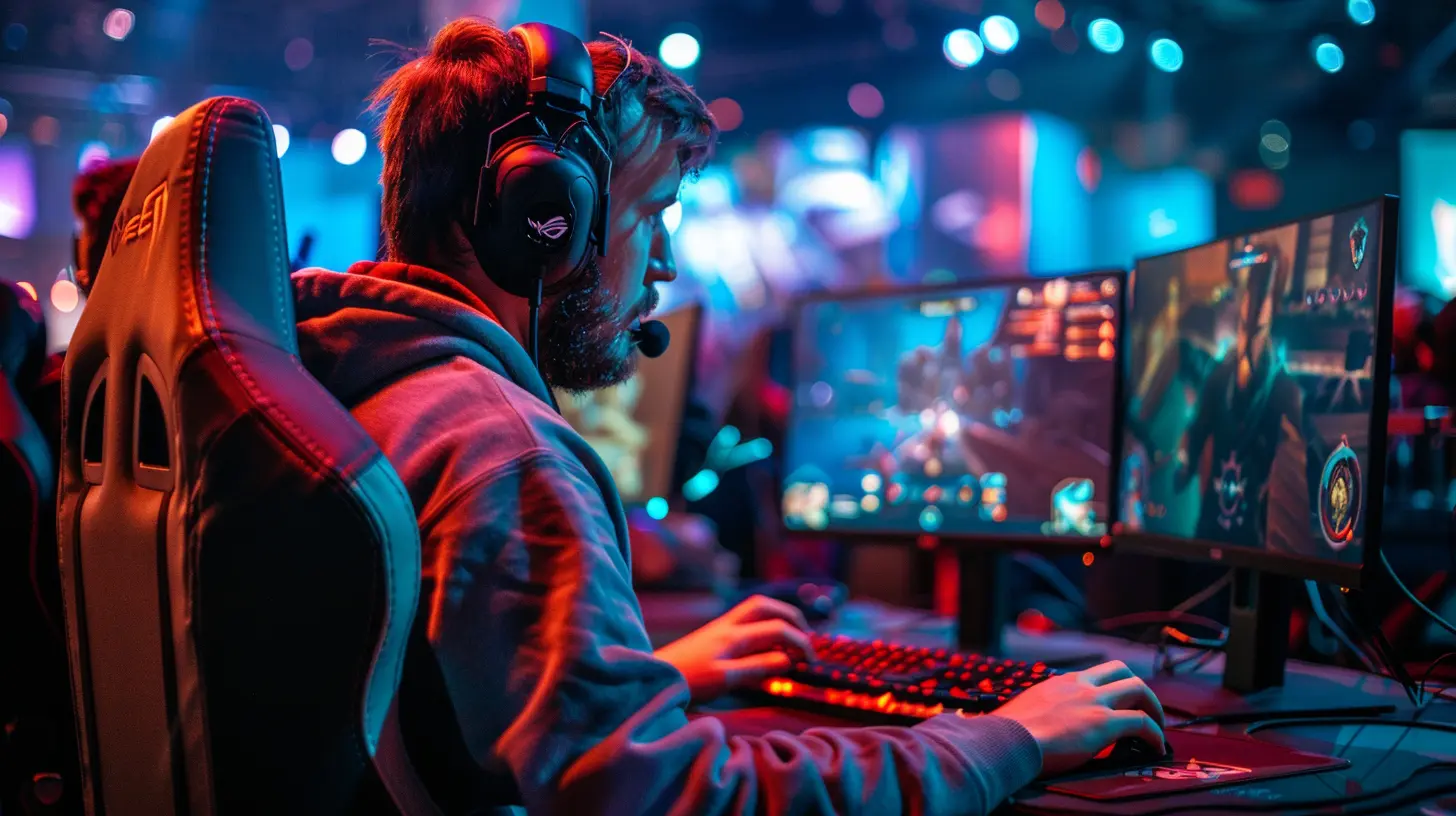Understanding Esports and What It Means for Young Gamers
5 August 2025
Esports. If you're a parent raising a kid who spends more time with a controller than a textbook, you've probably heard this word thrown around like the latest Fortnite emote. Or maybe you're a young gamer yourself, thinking about whether gaming could actually become something... more. Either way, you’re in the right place.
Let’s break this all down — what exactly is esports? Why has it exploded in popularity? And more importantly, what does it mean for young gamers growing up in a world where video games are more than just fun… they’re serious business.
What Exactly Is Esports?
Imagine traditional sports like basketball or soccer, but instead of athletes on a field, you've got players seated at PCs or consoles, competing in games like League of Legends, Valorant, or Fortnite. That’s esports in a nutshell.Esports, short for "electronic sports", refers to competitive video gaming where individuals or teams go head-to-head in organized tournaments for prize money, sponsorships, and ultimately, bragging rights. And yes, it's a real career path — we'll get to that in a bit.
These competitions are streamed live on platforms like Twitch and YouTube, drawing millions of viewers globally. We're talking sold-out arenas, six-figure cash prizes, and fans cheering louder than at your average football match.
The Rise of Esports: From Bedroom to Stadium
Just a decade ago, gaming was mostly seen as a casual hobby — something that happened in living rooms and basements. Fast forward to today, and it’s a billion-dollar industry with professional teams, dedicated coaches, training schedules, and international championships.Let that sink in: kids playing video games are now considered athletes. 🎮 Just like LeBron practices his jump shot, elite gamers practice their reflexes, teamwork, and strategies for hours each day.
What triggered this boom? A few key ingredients:
- Streaming platforms: Sites like Twitch made it possible for anyone to become a gaming celebrity.
- Sponsorships: Big brands like Red Bull, Adidas, and Intel jumped on board.
- Global accessibility: Anyone with a decent internet connection and a console can participate.
Esports is no longer a niche — it’s mainstream.
What Games Are Part of Esports?
Not every game makes it into the esports arena. The games that do usually share a few common traits: they're skill-based, competitive, and have huge communities. Here are a few of the heavy hitters:- League of Legends – A strategic, team-based MOBA that’s practically the Super Bowl of esports.
- Counter-Strike: Global Offensive (CS:GO) – A tactical shooter that’s been popular for decades.
- Fortnite – A battle royale with massive appeal to younger audiences.
- Dota 2 – Hardcore strategy with jaw-dropping tournament prize pools.
- Valorant – Riot Games' FPS that mixes breathtaking skill with team tactics.
- Call of Duty & Overwatch – Fast-paced shooters with big-time professional leagues.
And let’s not forget about fighting games like Super Smash Bros. and sports titles like FIFA and NBA 2K. If it’s popular and competitive, it has a shot at being part of the esports world.
Why Esports Appeals to Young Gamers
Okay, so esports is kind of a big deal now. But why are young people especially drawn to it?1. The Thrill of Competition
Whether you’re playing casually online or participating in a local tournament, the drive to get better and beat your opponents is addictive. It’s just like traditional sports — the same adrenaline rush, the same rivalries, the same hustle.2. A Sense of Community
Gaming isn’t as solitary as it used to be. Through platforms like Discord and Reddit, young gamers find communities where they can talk strategy, find teammates, and share memes about their favorite game failures.3. Career Opportunities
Yep, esports can be a job. Not just as a pro player (though that’s the dream for many), but as a coach, shoutcaster (aka commentator), analyst, content creator, or even part of a game development team.4. Personal Development
Believe it or not, esports helps build real-life skills. We’re talking about communication, critical thinking, decision-making under pressure, multitasking, and even leadership. Doesn’t sound like just “playing games” anymore, does it?The Career Side of Esports: More Than Just Playing
Let’s get real — not everyone is going to be the next Faker or Ninja. But esports is a massive ecosystem, and young gamers with passion and creativity can find tons of roles within it.Pro Player
This one's the spotlight role. Competing on stage in front of cheering fans, traveling for events, living the gamer dream. But it takes insane dedication and thousands of hours of practice to make it.Streamer or Content Creator
Some gamers build empires just by playing in front of a camera and being entertaining. Think YouTube videos, Twitch streams, TikTok highlights — social media is your stage.Esports Coach or Analyst
For those who like the strategy behind the game rather than the spotlight, coaching and analysis are growing fields. You help others improve by breaking down gameplay, reviewing strategies, and building team synergy.Shoutcaster or Commentator
Love talking fast and hyping up intense moments? Shoutcasting is the esports version of being a sports announcer. You narrate games live, analyze plays, and bring the hype to the audience.Event Organizer or Manager
Tournaments don't run themselves. From local LAN parties to world championships, there’s an entire crew working behind the scenes — organizing brackets, managing tech, coordinating players and teams.Parental Perspective: Should Parents Worry?
If you’re a parent reading this, you might be wondering, “Okay, but is it healthy for my kid to be this into gaming?”Hey, we get it. Concerns about screen time, sedentary habits, and internet safety are legit. But let’s be fair — with proper boundaries and support, esports can be as enriching as any other organized activity.
Here’s the deal: treat esports like you would any sport or hobby.
- Encourage balance – School, sleep, and social time matter too.
- Set screen time limits – Especially for younger kids.
- Get involved – Watch matches together, talk about their favorite players.
- Support healthy habits – Stretching, physical activity, and eye breaks go a long way.
- Open conversations about online behavior – Cyberbullying and toxic communities exist, but talking helps.
The key is to be present, not controlling. When kids are passionate about something, they thrive with guidance instead of suppression.
How to Get Started in Esports (Even from Home)
The cool thing about esports? You don't need fancy gear or a massive budget to start.Start With the Game You Love
Don’t jump into a game just because it’s popular in esports. If you’re not enjoying it, what’s the point? Whether it’s Super Smash Bros or Rocket League, start with what excites you.Watch the Pros
Tuning into professional matches teaches you a lot — strategy, positioning, timing, communication. Plus, it’s totally inspiring.Join Online Communities
Reddit, Discord, Twitter — there's a massive online world of players ready to welcome newcomers, share tips, form teams, or just meme it up.Enter Amateur Tournaments
Websites like Battlefy, Toornament, and Smash.gg host thousands of online competitions for beginners. It’s a great way to test your skills and make friends.Build Your Brand
If you’re serious about esports as a future, treat yourself like a brand. Stream your games. Post highlights. Be consistent. You never know who’s watching.The Good, the Bad, and the Laggy: The Pros and Cons of Esports
No rose without a thorn, right? Let’s talk about the ups and downs of diving into the esports universe.✅ The Pros:
- Builds teamwork and strategic thinking- Encourages goal-setting and dedication
- Fosters a sense of community
- Opens doors to unique careers
- Can lead to scholarships and educational programs
❌ The Cons:
- Can lead to excessive screen time without proper limits- Online toxicity and bullying exist
- Physical health can suffer with poor habits
- Not everyone makes it to the top
- Can impact studies if not balanced correctly
Like any passion, navigating esports takes responsibility and balance. But with the right mindset? It can be life-changing.
So, What Does Esports Really Mean for Young Gamers?
It means options. A new kind of playground. A future built on strategy, communication, creativity, and — yep — a whole lotta gaming.Gone are the days when gaming was just a “waste of time.” Today, it’s a legitimate career, a competitive sport, and a booming industry that's not slowing down any time soon.
Whether your dream is to go pro, entertain the masses, or just improve your skills with your squad, esports is open to you. All it takes is passion, practice, and pushing play.
So go ahead. Pick up that controller, shake off the doubt, and get in the game.
all images in this post were generated using AI tools
Category:
Parental Guide To GamesAuthor:

Tayla Warner
Discussion
rate this article
2 comments
Opal Carey
Empowering young gamers: Esports opens doors to passion and possibility!
January 26, 2026 at 4:44 PM
Lysara Long
This article offers valuable insights into esports and its impact on young gamers. It's essential to understand both the positive opportunities and potential pitfalls as the industry continues to grow. Well done!
August 20, 2025 at 2:58 AM

Tayla Warner
Thank you for your thoughtful feedback! I'm glad you found the insights valuable. It's crucial to explore both the opportunities and challenges in the esports landscape.


